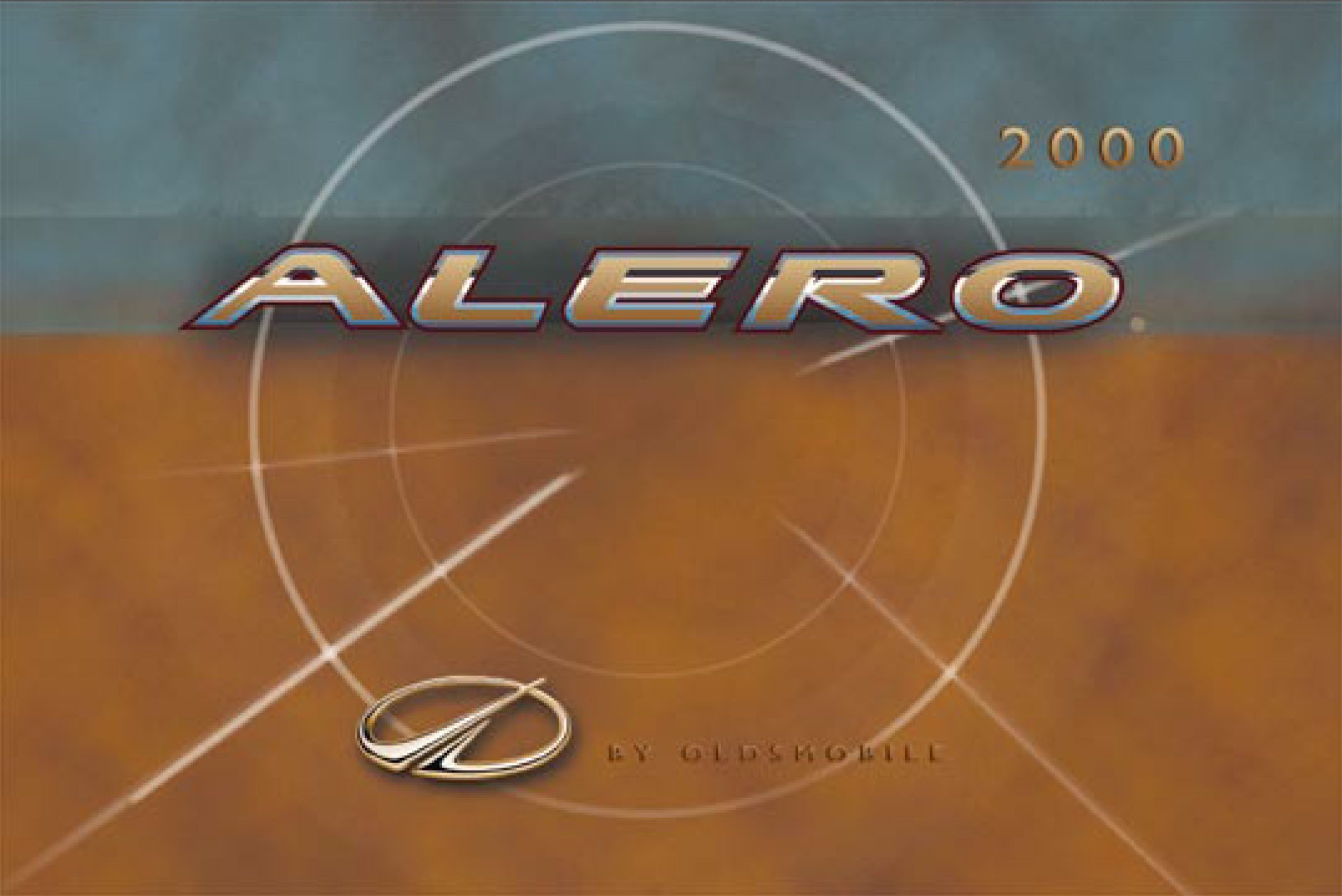The 2000 Oldsmobile Alero is a stylish and comfortable sedan designed to provide a smooth and enjoyable driving experience. Whether you’re cruising through town or taking a road trip, the Alero is a reliable companion, ready to meet your everyday needs. This owner’s manual is your guide to understanding and operating your Alero, ensuring you unlock its full potential and get the most out of every drive.
Inside This Manual:
Introduction and Safety:
Discover the key features of your 2000 Oldsmobile Alero and explore essential safety information to keep you and your passengers secure. Learn about the advanced safety features included in the 2000 Alero, like the anti-lock brake system (ABS), driver and passenger airbags, and other safety systems designed to protect you in the event of an accident. This manual is your resource for ensuring a safe and enjoyable driving experience.
Driving Your Alero:
Master the art of driving your 2000 Oldsmobile Alero with confidence. This section covers everything you need to know about starting, driving, parking, and utilizing all its features, including its responsive engine, comfortable handling, and user-friendly controls. Learn about starting the engine, shifting gears (automatic or manual), using the turn signals, operating the headlights, adjusting the mirrors, and understanding the instrument panel. Whether you’re navigating city streets or cruising on highways, the Alero delivers a smooth and comfortable ride.
Understanding Your Alero’s Features:
Dive into the features that make your 2000 Oldsmobile Alero a comfortable and convenient vehicle. Explore its intuitive audio system, its climate control system, its comfortable seating, and its other convenient features designed to enhance your driving pleasure.
Maintaining Your Alero:
Learn how to keep your 2000 Oldsmobile Alero running smoothly with routine checks, recommended maintenance schedules, and specific care for its components. This section includes instructions for checking the engine oil level, checking the coolant level, checking the brake fluid level, checking the tire pressure, and inspecting the tires for wear and damage. You’ll also find a recommended maintenance schedule with service intervals for oil changes, tire rotations, and filter replacements. Regular maintenance is crucial for maintaining optimal performance and longevity, ensuring your Alero stays reliable for years to come.
Troubleshooting and Repairs:
Find helpful information on identifying and resolving common issues, ensuring your Alero stays in top shape and ready for any journey. This section covers basic troubleshooting steps like checking fuses, resetting the infotainment system, and addressing common problems. Learn when to seek professional help and how to find a qualified mechanic.
Common Issues:
While the 2000 Oldsmobile Alero is a reliable vehicle, it’s important to be aware of some common issues that might arise. Here are a few to keep in mind:
- Electrical Problems: Some owners have reported issues with electrical components, such as the headlights, taillights, or power windows.
- Transmission Problems: Occasional transmission issues, such as slipping or rough shifting, have been reported.
- Engine Problems: Some owners have experienced issues with the engine, such as misfires or stalling.
- Battery Issues: A dead battery can be a common problem, particularly if the vehicle is not driven regularly.
Glossary of Terms:
A comprehensive glossary of terms to help you understand the technical aspects of your 2000 Oldsmobile Alero. Learn the definitions of key terms related to engine types, transmission types, safety features, and other relevant terms.
Your Alero is More Than Just a Vehicle:
It’s a symbol of comfort and style, designed to make your driving experience enjoyable and reliable. This manual is your key to understanding its capabilities and ensuring you enjoy every journey and experience the true value of the 2000 Oldsmobile Alero.
Access to the Owner’s Manual:
Important Note:
Always refer to this manual for the most up-to-date information and safety guidelines.
